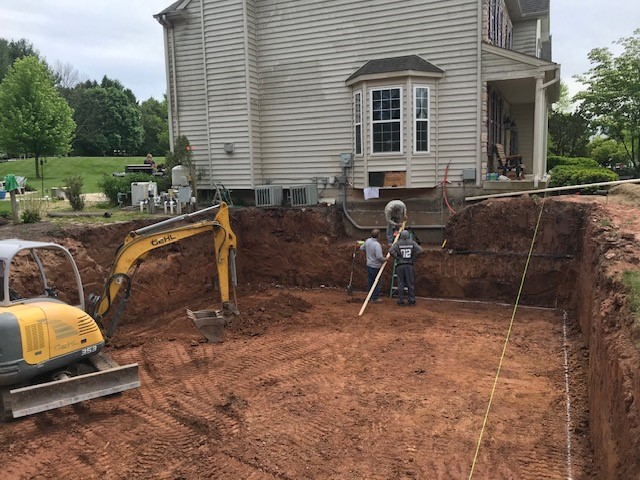Comprehensive Excavation Techniques: Grasping the Principles for Success
In the realm of building and construction and civil design, the value of efficient excavation approaches can not be overemphasized. The careful planning, specific implementation, and precise attention to information required in excavation tasks require an extensive technique that incorporates numerous fundamental facets. From initial dirt evaluation to the application of security steps and regular progress monitoring, grasping these core elements is important for accomplishing success in any excavation undertaking. The real proficiency lies not just in recognizing these fundamentals yet in effortlessly incorporating them to navigate the intricacies of excavation jobs with skill.
Comprehending Excavation Job Preparation

The preliminary phase of any type of excavation task is the planning stage, where critical decisions are made that can considerably impact the outcome of the job. Comprehending the task budget plan, range, and timeline restraints is important for producing a comprehensive excavation plan that makes certain the task's success.
One trick facet of excavation job planning is the advancement of a detailed timeline that outlines the sequence of due dates, activities, and milestones. By thoroughly considering all these aspects throughout the planning stage, excavation tasks can be performed effectively and properly, leading to successful results - lancaster trenching.
Soil Evaluation and Website Assessment
Performing extensive soil evaluation and website analysis is a critical step in the prep work phase of any excavation project. Soil analysis includes establishing the structure, framework, and buildings of the soil at the excavation site. This information is vital for understanding the dirt's bearing capacity, wetness content, and potential for erosion, which are key consider figuring out the excavation methods and equipment needed for the job.
Website examination exceeds soil evaluation and includes a broader analysis of the general site conditions. This assessment includes determining any prospective dangers, such as below ground utilities, ecological worries, or unstable terrain, that might impact the excavation procedure. By thoroughly assessing the site, job supervisors can establish effective excavation techniques that focus on safety, performance, and ecological defense.
Using advanced modern technologies like ground-penetrating radar, soil sampling, and drone surveys can enhance the accuracy and performance of soil analysis and site evaluation. Spending time and resources in these initial steps can eventually conserve time and stop expensive delays or problems during the excavation process.
Equipment Selection and Utilization
Efficient excavation jobs rely greatly on calculated equipment choice and use to ensure optimum efficiency and productivity. Choosing the ideal tools for the job is critical in maximizing effectiveness and lessening downtime. Variables such as the sort of soil, depth of excavation, and task scope play a substantial duty in figuring out the most ideal equipment for the job available.

Along with selecting the appropriate devices, proper utilization is crucial to job success. Operators has to be trained to manage the equipment securely and effectively More hints - excavating ohio. Regular upkeep checks and prompt repair work assist stop break downs and guarantee regular efficiency throughout the task
Precaution and Regulations Conformity
In the realm of excavation projects, prioritizing precaution and conformity with guidelines is critical to guaranteeing a safe and secure and lawfully sound operational environment. continue reading this Precaution incorporate a variety of practices, consisting of conducting detailed site analyses, implementing correct signage and barriers, and providing appropriate safety training for all employees entailed in the excavation process. Adherence to laws, such as OSHA demands in the United States, guarantees that the excavation project satisfies the needed standards to safeguard workers, onlookers, and the surrounding environment.

Monitoring Development and Adjusting Methods
Exactly how can project supervisors properly track the advancement of excavation jobs and adjust their strategies appropriately to optimize results? Monitoring development is important for ensuring that excavation projects remain on track and satisfy deadlines. Task supervisors can make use of different devices and methods to track progress, such as day-to-day report card, regular website evaluations, and progressed monitoring technologies like drones and GPS tracking systems. By continually keeping an eye on the job's improvement, supervisors can identify any kind of possible delays or problems early and take positive procedures to address them.

Verdict
In final thought, understanding the basics of thorough excavation techniques is crucial for the success of any task. By understanding project preparation, analyzing soil and website problems, picking proper equipment, complying with safety and security laws, and keeping track of development, task supervisors can make sure a smooth and reliable excavation process. Executing these techniques will certainly bring about effective end results and reduce prospective threats or setbacks during the excavation task.
The initial phase of any type of excavation project is the planning stage, where essential decisions are made that can substantially impact the result of the task. Recognizing the job budget, scope, and timeline constraints is critical for developing a detailed excavation strategy that makes sure the task's success.
Just how can predict supervisors effectively track the improvement of excavation tasks and adjust their approaches accordingly to enhance end results? By closely checking development and being ready to adapt methods, task managers can improve the total success of excavation jobs.
By recognizing job preparation, assessing dirt and site conditions, picking proper equipment, conforming with security laws, and monitoring development, job managers can make sure a effective and smooth excavation procedure.